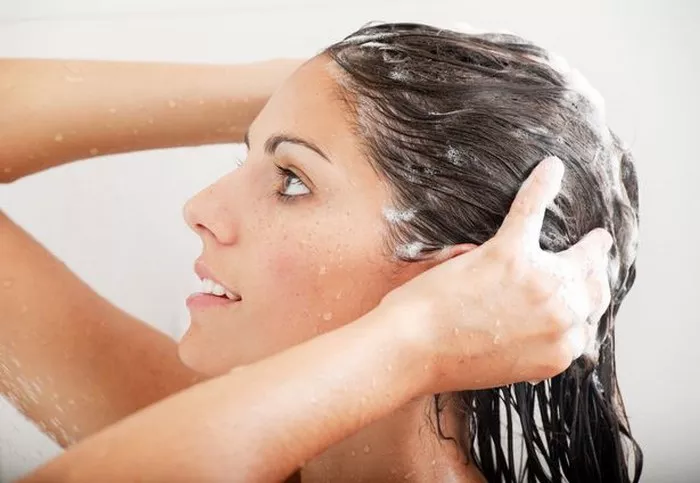Understanding the Causes of Oily Scalp:
An oily scalp can be a persistent nuisance, affecting both appearance and comfort. Understanding its root causes is essential for effective management. Several factors contribute to the overproduction of sebum, the natural oil produced by the scalp. Genetics play a significant role, as some individuals are predisposed to produce more oil than others. Additionally, hormonal fluctuations, stress, and dietary habits can influence sebum production.
Skin conditions such as seborrheic dermatitis, eczema, and psoriasis can exacerbate oily scalp issues. These conditions cause inflammation and flaking of the scalp, leading to an overproduction of oil as the skin tries to compensate for the dryness and irritation. Proper diagnosis and management of these underlying skin conditions are crucial for addressing oily scalp concerns effectively.
Treatment Options and Home Remedies:
Managing an oily scalp often begins with simple yet effective home remedies. Natural ingredients like aloe vera, renowned for its soothing properties, can help alleviate inflammation and regulate sebum production. Similarly, essential oils such as orange and mandarin oils possess antimicrobial properties that can combat the bacteria responsible for exacerbating oily scalp issues.
Fish oil supplements, rich in omega-3 fatty acids, have shown promise in reducing dandruff flare-ups associated with oily scalp conditions. These supplements help maintain scalp health by moisturizing dry, flaky skin and reducing inflammation. However, it’s essential to consult a healthcare professional before incorporating supplements into your routine.
Choosing the Best Shampoo for Oily Hair:
Selecting the right shampoo is paramount in managing oily scalp concerns. Look for products specifically formulated for oily hair and scalp, as they typically contain ingredients that help regulate oil production and remove excess sebum without stripping the scalp of its natural oils. Salicylic acid, a beta-hydroxy acid, is particularly effective in unclogging hair follicles and reducing oil buildup.
Several shampoos cater to oily hair types and offer targeted solutions. Neutrogena T/Sal Therapeutic Shampoo, containing salicylic acid, effectively controls oiliness while soothing scalp irritation. Ouai Fine Hair Shampoo is another excellent choice, as it provides gentle cleansing without weighing down fine hair. Aveeno Apple Cider Vinegar Sulfate-Free Shampoo is formulated with apple cider vinegar, known for its clarifying properties, to remove excess oil and impurities. L’Oreal Paris Elvive Extraordinary Clay Shampoo is designed to purify roots and hydrate dry ends, striking a balance between addressing oily scalp concerns and nourishing hair lengths.
Balancing Oily Roots and Dry Ends:
Managing oily roots alongside dry ends presents a unique challenge, requiring a delicate balance of moisture and oil control. Overwashing can strip the scalp of its natural oils, leading to increased oil production as the skin attempts to compensate. Opt for sulfate-free shampoos, as sulfates can be harsh and drying, exacerbating dryness at the ends of the hair.
Using separate products for the scalp and hair lengths can help address specific concerns. Focus shampoo application on the scalp, where oil buildup is most prominent, and use a lightweight conditioner primarily on the lengths and ends to prevent dryness without adding excess weight to the roots.
Additional Considerations:
Genetics play a significant role in determining oil production levels, with some individuals naturally predisposed to oily scalp conditions. While genetics cannot be changed, proper scalp care and maintenance can help manage oiliness effectively.
It’s essential to consider the impact of underlying skin conditions on scalp health. Seborrheic dermatitis, eczema, and psoriasis can contribute to oily scalp concerns and may require targeted treatment approaches. If home remedies and over-the-counter products fail to alleviate symptoms, consulting a dermatologist is advisable for personalized treatment recommendations.
In conclusion, managing an oily scalp requires a multifaceted approach that addresses both the underlying causes and symptoms. By understanding the factors contributing to oiliness, incorporating suitable home remedies and choosing the right hair care products, individuals can effectively manage oily scalp concerns and maintain scalp health. However, for persistent or severe symptoms, seeking professional guidance is essential to ensure proper diagnosis and treatment.
FAQs
Can I make my scalp less oily?
Yes, there are several steps you can take to reduce scalp oiliness. Firstly, try washing your hair regularly with a gentle shampoo specifically formulated for oily hair. Avoid over-washing, as it can strip the scalp of natural oils, leading to rebound oil production. Additionally, incorporate products containing ingredients like salicylic acid or tea tree oil, known for their oil-controlling properties. Finally, consider adjusting your diet to include more fruits, vegetables, and lean proteins, as a balanced diet can promote healthier scalp conditions.
What causes an oily scalp?
An oily scalp is often caused by overactive sebaceous glands, which produce an excess of sebum, the skin’s natural oil. This overproduction can be influenced by various factors, including hormonal changes, genetics, stress, and environmental factors like humidity and pollution. Additionally, using harsh hair products or over-washing can disrupt the scalp’s natural balance, leading to increased oiliness.
How do I stop my hair from being oily?
To combat oily hair, start by choosing the right hair care products. Opt for oil-free or lightweight shampoos and conditioners, and avoid applying conditioner to the scalp. Limit the use of styling products and avoid touching your hair throughout the day, as this can transfer oils from your hands to your hair. Blotting papers or dry shampoo can also help absorb excess oil between washes. Finally, consider consulting a dermatologist for personalized recommendations if your oily scalp persists despite home remedies.
What to avoid with an oily scalp?
When dealing with an oily scalp, it’s essential to avoid certain habits and products that can exacerbate the issue. Firstly, refrain from over-washing your hair, as this can strip away too much oil, prompting your scalp to produce even more. Similarly, avoid using heavy or greasy hair products, as they can weigh down your hair and make it appear oilier. Try to minimize touching your hair throughout the day, as this can transfer oils from your hands to your scalp. Additionally, steer clear of hot water when washing your hair, as it can stimulate oil production.


